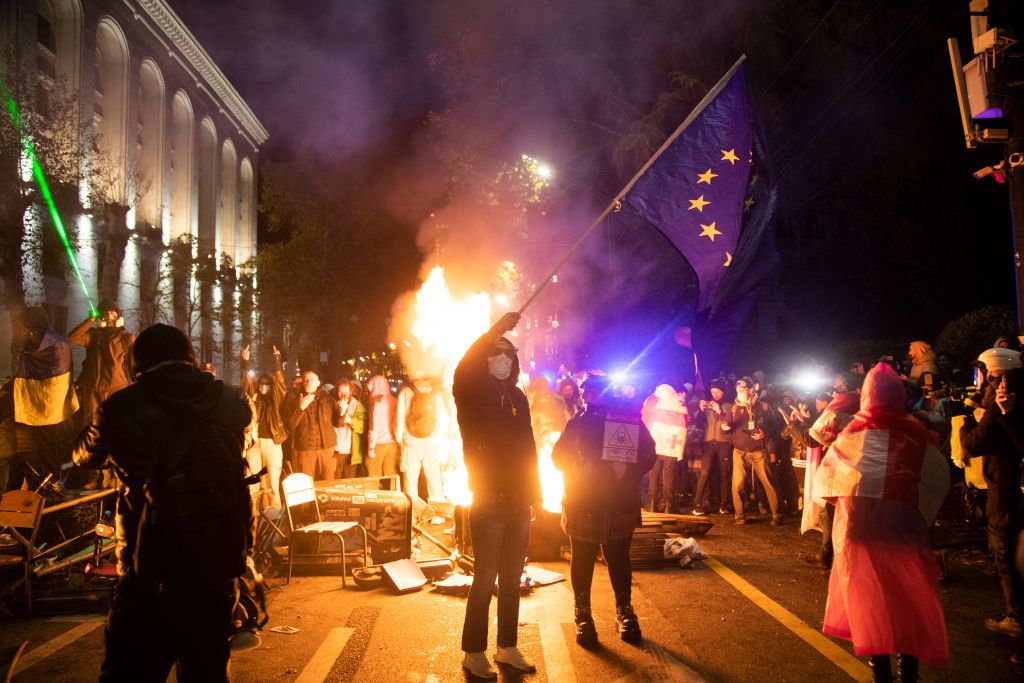Editor's Note: This is a developing story.
Mass protests against the pro-Russian government have broken out in major cities across Georgia, despite police attempts to disperse demonstrators, the Georgian outlet Sova News reported on Nov. 30.
The protests were sparked by Prime Minister Irakli Kobakhidze's decision to postpone Georgia's accession to the European Union until 2028.
Police reportedly used pepper spray and water cannons to disperse demonstrators in Tbilisi on Nov. 29, but protests have now spread to Batumi, Zugdidi, Kutaisi, Telavi, Gurjaani, and other Georgian cities.
Thousands of protesters have again amassed in Tbilisi's Freedom Square on Rustaveli Avenue, completely blocking the street.
Protesters have begun erecting barricades near the parliament building, Echo of the Caucasus reported. Demonstrators also launched fireworks at parliament, causing a fire to break out.
Police have reportedly launched smoke bombs against protesters and used water cannons in response.
In response to the ruling Georgian Dream party's decision to suspend EU accession talks, the U.S. State Department announced on Nov. 30 that it was suspending the U.S.-Georgia Strategic Partnership.
"Georgian Dream's various anti-democratic actions have violated the core tenets of our U.S.-Georgia Strategic Partnership ... As a result, the United States has suspended this mechanism," the statement read.
Georgian President Salome Zourabichvili responded to the decision, calling it the "tragic result" of the pro-Russian Georgian Dream's anti-democratic decisions.
"It's clearer than ever that the course they pursue leads only in one direction — toward Russia," she said on X.
The Georgian Dream party, now led by Kobakhidze, has faced accusations of democratic backsliding and steering the country closer to the Kremlin. Earlier this year, the controversial "foreign agents" law prompted mass protests and violent crackdowns by police.
The October parliamentary elections kicked off another round of protests, amid accusations that Georgian Dream perpetrated widespread fraud and rigged the vote.
Following the vote, the European Commission suspended Georgia's EU accession process, highlighting the growing rift between Tbilisi and the West.
While pro-EU Georgians took to the streets in protest, Kobakhidze defended his decision to delay EU accession and said that a "Maidan situation" would not happen in Georgia.
"(U)nlike Ukraine in 2013, Georgia is an independent state with strong institutions and, most importantly, experienced and wise people whose power no one can shake. The Maiden scenario cannot be realized in Georgia," Kobakhidze said during a government press conference.
His remarks refer to Ukraine's 2013 EuroMaidan Revolution, a months-long popular uprising provoked by former President Viktor Yanukovych's refusal to sign a much-anticipated Association Agreement with the EU.
"For the third year now, specific European politicians and bureaucrats who have failed to achieve the Ukrainization of Georgia have been constantly trying to use the candidate status and the issue of opening negotiations to weaken the country, so-called provoke polarization, and artificially depopulate society," Kobakhidze said.














